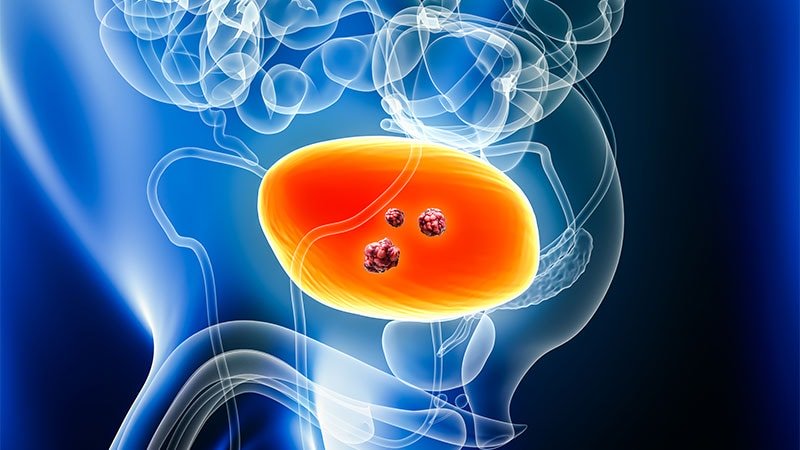The National Institute for Health and Care Excellence (NICE) has recommended the combination of enfortumab vedotin (Padcev, Astellas) with pembrolizumab (Keytruda, MSD) as a first-line option for adults with unresectable or metastatic urothelial cancer who are eligible for platinum-based chemotherapy.
More than 1200 people in England are expected to benefit each year. Clinical experts described the combination therapy as a “step change” in bladder cancer management. Until now, treatment options for this patient group have seen little meaningful progress since the 1980s.
Enfortumab vedotin is an antibody-drug conjugate consisting of an antibody targeting nectin-4, a protein highly expressed in urothelial carcinoma cells. After binding, it causes the cells to release monomethyl auristatin E, resulting in cell death. Pembrolizumab, its combination partner, is a PD-1 inhibitor.
High Disease Burden
Urothelial cancer accounts for around 90% of bladder cancers, affecting more than 18,000 people annually in England. Prognosis is poor, with only 10% of patients with stage 4 disease surviving for 5 years or more.
Current standard treatments include platinum-based chemotherapy ( cisplatin or carboplatin with gemcitabine) followed by avelumab maintenance therapy if the cancer has not progressed. However, only about 12% of patients see improvement with chemotherapy, underscoring the need for better options.
Patient experts described living with metastatic urothelial cancer as “intensely challenging and emotionally exhausting,” affecting work, travel, and physical activity. Action Bladder Cancer UK called the announcement a “very welcome, and significant, step forward for this hard-to-treat cancer.”
Clinical Evidence
The recommendation in final draft guidance was supported by results from the phase 3 EV-302 trial, which enrolled 886 adults with untreated, unresectable, locally advanced, or metastatic urothelial cancer. Participants were randomly assigned in a 1:1 ratio to receive either enfortumab vedotin-pembrolizumab or standard chemotherapy.
Enfortumab vedotin-pembrolizumab nearly doubled the median time to disease progression or death to 12.5 months, compared with 6.3 months for chemotherapy. Median overall survival was also improved, at 33.8 months vs 15.9 months with chemotherapy.
Helen Knight, director of medicines evaluation at NICE, said the drug combination is “highly promising and effective,” adding that these clinical trial results highlight the “tremendous difference” it could make to the length and quality of people’s lives.
Cost and NHS Access
Enfortumab vedotin is listed at £578 per 20 mg vial or £867 per 30 mg vial. Pembrolizumab costs £2630 per 100 mg vial, excluding VAT.
The drugs will be supplied through confidential commercial arrangements with the NHS. NICE’s appraisal committee applied a severity modifier, reflecting the high disease burden, and concluded that the therapy met acceptable cost-effectiveness thresholds.
The treatment will be available immediately across the NHS in England, with funding required within 90 days of final publication of the guidance.
Source link : https://www.medscape.com/viewarticle/new-first-line-option-advanced-bladder-cancer-2025a1000m60?src=rss
Author :
Publish date : 2025-08-21 14:50:00
Copyright for syndicated content belongs to the linked Source.
